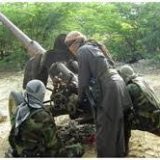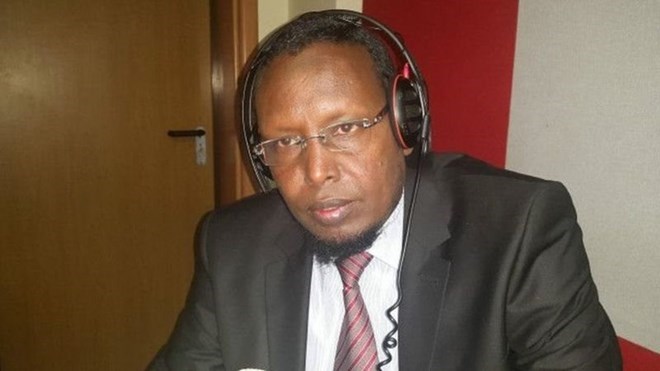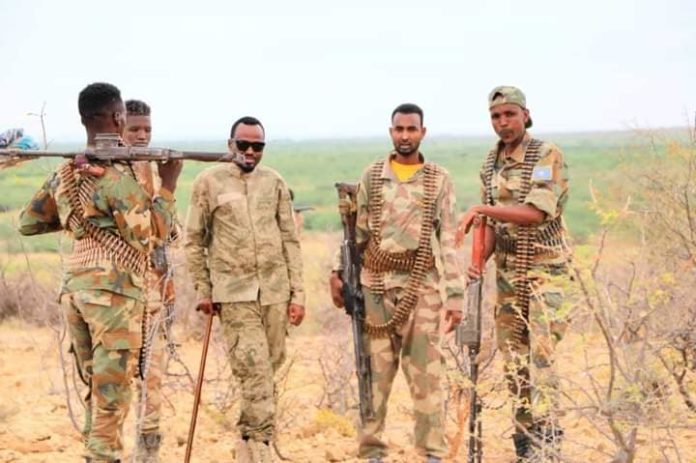Somali Rebel Leader’s Death May Spur Shift to Islamic State
An “internal leadership rift is likely” as al-Shabaab members “have been questioning Godane’s alliance with al-Qaeda and agitating for some time for a switch to” the Islamic State, Bryden, a former head of the United Nations Monitoring Group on Somalia and Eritrea, said by phone yesterday from Nairobi.
In a radio speech broadcast two days ago, al-Shabaab spokesman Sheikh Abdul-Aziz Musab pledged loyalty to the group’s new leader, Ahmed Omar, who is known also as Abu-Ubeydah, and vowed to avenge Godane’s death.
Cracks within al-Shabaab existed before Godane died, including a lobby pushing for closer alignment with Islamic State, the Sunni insurgency in Iraq and Syria that the U.S. is trying to defeat with a broader military offensive.
The Islamic State, also known as ISIS or ISIL, “has territory, it has resources, it can provide training, military and financial support, so very practically it offers a great deal more,” said Bryden. “It is more hardline and extreme than al-Qaeda. Clearly an affiliation would legitimize a lot more of the extreme acts that we’ve seen in the past from al-Shabaab.”
Letter Message
Godane’s selection of Omar as his successor, confirmed in a letter before his death, will probably be contested, said Stig Jarle Hansen, associate professor at the University of Life Sciences in Oslo and author of “Al-Shabaab in Somalia: The History and Ideology of a Militant Islamist Group.”
Omar has family links to Godane, a northern Somali from the Isaaq clan, while one of his main rivals Mahad, also referred to as Karate, is from the Ayr clan in the south, Hansen said.
“I heard strong rumors that his leadership was challenged,” he said. “Mahad, from a personal perspective, has been so important and close to Godane and played such an important role in assisting Godane’s leadership that I think that there is clearly a degree of personal ambition and feeling he has been wronged by the decision.”
External Attacks
Godane, for his part, led the group at a time when al-Shabaab extended its attacks beyond Somalia’s borders.
In addition to the Westgate shopping mall raid in September 2013 in Kenya, the group has carried out a string of gun and grenade attacks in that country, Djibouti and Somalia, including storming the presidential palace twice this year. In 2010, it killed more than 70 people in twin suicide bombings in Uganda’s capital, Kampala.
The latest offensive by the African Union peacekeeping mission in Somalia is aimed at reclaiming strategic towns along the Horn of African nation’s coast to cut off entry points for foreign fighters and to stop the group’s trade revenue.
Al-Shabaab carried out a twin suicide car bombing that killed 16 civilians in an attack targeting African Union soldiers yesterday outside of the capital, Mogadishu.
The insurgent group will probably want to avenge the death of Godane as it gathers more resources, said Bryden.
“An affiliation with ISIS would create new opportunity for training, for battlefield exposure, for networking, so al-Shabaab could actually become more dangerous despite being weakened,” he said.
Post your comments
You need a Frames Capable browser to view this content.



















